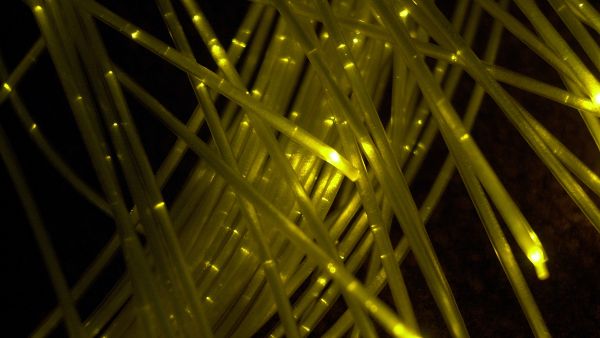A submarine cable which will give Internet service providers the capacity they need to supply high-speed Internet services, including 3G, was put into action Monday, after months of waiting. “The tap was closed, and now it’s open,” Antoine Boustany, an adviser to Telecoms Minister Nicolas Sehnawi said Tuesday.
In a statement released by the Telecommunications Ministry Tuesday, Sehnawi confirmed that people could expect “important developments” in the sector that “will coincide with the liberalization of the international capacities known as IMEWE and Cadmos.”
The statement added that Sehnawi would present a draft bill to the Cabinet in the coming three weeks that would reduce the prices of Internet services in the country.
The ministry contacted ISPs Monday morning to inform them that capacity they had requested several months ago from the India-Middle East-Western Europe submarine cable would now be available, Habib Torbey, the head of the Lebanese Telecom Association and president of GlobalCom Data Services, which groups all of the country’s private ISPs, told The Daily Star Tuesday. Torbey said IDM, the ISP owned by GDS, had noticed the increase in capacity Monday afternoon.
“This will really change the Internet landscape in Lebanon,” Torbey said.
The 13,000 kilometer IMEWE cable runs between India and France and has a potential capacity of 3.84 Terabits per second. It has been operational since 2009, but its implementation in Lebanon has been repeatedly delayed. Its intended launch date of Dec. 13, 2010, was postponed by the IMEWE consortium, which controls the supply, because of a dispute between the Telecoms Ministry, then headed by Charbel Nahhas, and OGERO, the semi-autonomous company responsible for administering telecoms in the country.
According to Boustany, access to the IMEWE cable was made possible after the previous minister, Charbel Nahhas, wrote to the consortium to inform them the ministry had sole authority over the country’s Internet supply.
In January the ministry announced plans to bring relatively high-speed 3G technology into the market via cellular companies Alfa and MTC within seven months, and Nahhas has said the network, which will require significantly more capacity, will utilize the IMEWE cable.
The cable will also mean ISPs are able, in the long run, to provide faster speeds to users. Imad Tarabay, CEO of ISP Cedarcom welcomed the move, in particular the Telecoms Ministry’s announcement that lower pricing would be introduced.
Unlike government-owned Alfa and MTC, ISPs currently pay some $3,000 for a line which costs the government $100 to supply, and Tarabay said that this is prohibitive to ISPs being able to provide affordable fast Internet to users.
“At the moment it’s as if they were inviting you to buy property in Downtown [Beirut],” he said. “There’s a lot of land, but nobody can afford it.”
The ministry did not specify in its statement by how much prices would be reduced, but Tarabay nonetheless said the decision was “a very good step.”
Activists campaigning for a faster Internet speeds also greeted the news with cheer Tuesday. Mark Daou, one of the co-founders of advocacy group Fast Lebanon said he welcomed the move “100 percent,” although he said the most immediate impact would be on 3G services which would be “guaranteed” by the increased capacity.
Samer Karam, the founder of Flip the Switch, which has been campaigning for the IMEWE cable to be put in use, said the move had been “a year in the making.”
Should the move lead to faster and cheaper Internet, it will have “a big impact on the local knowledge economy,” said Karam, as those Lebanese companies which rely on the Internet are put on a more competitive footing.
By Emma Gatten








